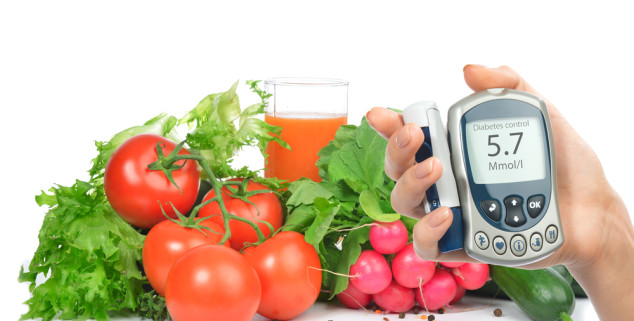Opinion
Diabetes: Targeting sweetened drinks is simplistic approach
 Healthy foods and exercise are a deterrent to diabetes. (Photo: Dimitry Lobanov)
Healthy foods and exercise are a deterrent to diabetes. (Photo: Dimitry Lobanov)More than one out of three adults have pre-diabetes. Fifteen to 30 percent of them will develop type 2 diabetes within five years if they don’t make lifestyle changes now. This is no exaggeration, these are numbers from the Centers for Disease Control and Prevention.
Unfortunately there is no silver bullet solution. In fact, RAND Corporation, a nonprofit think tank devoted to improving public policy, just released an independent study evaluating the health-related impacts of a 2008 fast-food ban in South Los Angeles. When local Councilmembers passed the policy, they hoped to curb the escalating obesity rates in the neighborhood. Unfortunately, RAND’s study found no such positive effects – further proving the simple truth that there is no such thing as a simple solution to a complex public health problem.
As a registered dietitian, my career is built on educating the public about healthy living. While there is no easy answer to curbing obesity and diabetes, the good news is both can be prevented through a combination of physical activity, balanced food choices and good old-fashioned weight loss. Banning one product or food does little to address public health. That’s like trying to fix a broken arm with a Band-Aid.
For instance, Americans consume twice as many calories from snacks like cupcakes and donuts than they do from sugar-sweetened beverages. A study from the American Journal of Clinical Nutrition concludes the consumption of added sugars from sweetened beverages dropped 37 percent over the past two decades. Meanwhile, the rate of diabetes has tripled, according to the CDC. So how exactly are sugar-sweetened beverages driving California’s high incidence of diabetes? It’s false and overly simplistic to target one group of foods or beverages.
That’s why I was surprised to hear special interest groups single out ready-to-drink teas, sports drinks and other sugar-sweetened beverages, like some organics, as the “most wanted suspects” contributing to type 2 diabetes. This view makes no sense. It is misleading and can even hinder finding long-term public health solutions.
The human metabolism does not discriminate against different forms of sugar. Fat-free salad dressing, like Thousand Island or French, can contain up to 42 grams of sugar. That’s more than a Twinkie. (It has 16.5 grams of sugar if you were wondering.) The key difference is when people eat Twinkies they know they are having a treat. With salad dressings? Not so much.
Here, just like with preventing diabetes, consumer awareness is key.
Too many calories, whether they come from sugar, fat, protein or carbohydrates, coupled with a sedentary lifestyle, can lead to health problems like obesity and type 2 diabetes. Physical activity is absolutely required to counter the deleterious effects of overconsumption. Without it, a person’s chances of becoming obese – or contracting type 2 diabetes, for which obesity is a major risk factor – greatly increases. And while the classic expression “calories in, calories out” may seem overly simplistic, it works.
The reasons for contracting diabetes, however, are not so simplistic. That’s why our approach to combating this disease must be broader in scope.
Now that the days are getting longer, Californians have more time after work and school to stay active. What’s better than unwinding from a long day by taking a jog, riding a bike or even going on a long walk to enjoy southern California sunsets.
Placing a bull’s-eye on one kind of product is nothing more than a political victory. It surely doesn’t help the rest of us avoid or delay developing something as serious and complicated as type 2 diabetes. Until the scientific community really does come up with a “cure-all” solution, I recommend taking a holistic approach. It takes a little more thought, but your health is worth it.
—
Ed’s Note: Carol Sloan is a Registered Dietitian Nutritionist (RDN) who serves as a nutrition consultant to the food and beverage industry.
Want to see more stories like this? Sign up for The Roundup, the free daily newsletter about California politics from the editors of Capitol Weekly. Stay up to date on the news you need to know.
Sign up below, then look for a confirmation email in your inbox.

[…] Dietitian Nutritionist Carol Sloan wrote in the Capital Weekly this week that misleading policies that demonize one product do not address the underlying causes […]
Title
[…]we like to honor numerous other net web-sites around the web, even when they aren’t linked to us, by linking to them. Underneath are some webpages worth checking out[…]